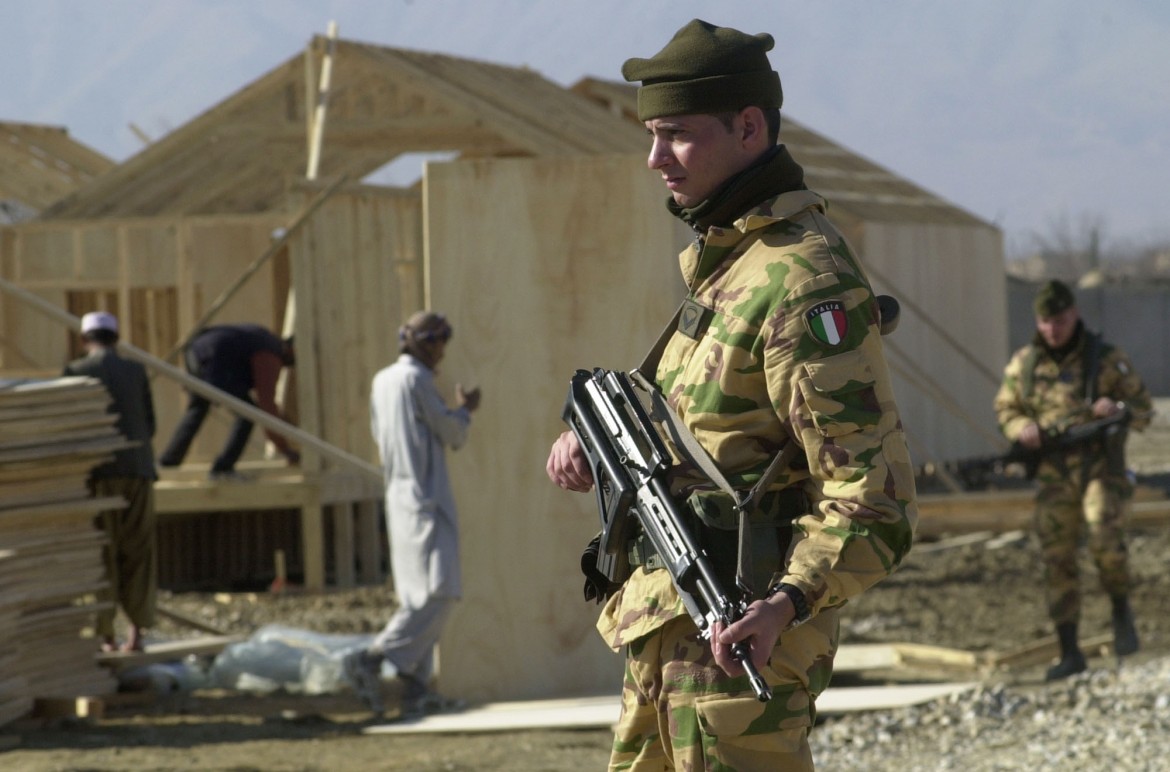Analysis
M5S-Lega won’t leave Afghanistan, abandoning pacifist rhetoric
The two political forces that gave rise to the Conte government, particularly the 5 Star Movement, seem to have quietly shelved their erstwhile proclamations and demands. These have been replaced by the usual Atlantic relationship of subordination: taking our place in line and waiting for our orders.

The statement issued by the Foreign Ministry headed by Enzo Moavero Milanesi about his meeting at the Ministry’s headquarters with the Chief Executive of the government of Afghanistan, Abdullah Abdullah, who was in Rome until Wednesday for a meeting of the World Food Programme, is no more than five lines long. If we add to this the message of encouragement on the occasion of the June 17 truce between Kabul and the guerrillas for the feast of Eid el-Fitr, Italy’s official position towards Afghanistan totals just eight and a half lines of text.
This is barely a quarter of the length of the statement issued by Moavero to the press on June 10, when he met with NATO Secretary General Stoltenberg in Rome. On that occasion, “Moavero made a point of recalling how Italy, the fifth largest contributor to the NATO budget, had put forward a great effort in terms of manpower, equipment and resources for NATO operations,” especially “in Afghanistan and Kosovo.” The minister also stressed “that the trend of growth” in military spending “is consolidating further.”
If this had been a meeting with the foreign minister of any of the previous Italian governments, all this would be business as usual. But the fact that Moavero represents the M5S and Lega—two movements that have always called for bringing the troops home—makes this a remarkable development.
It is true that Salvini’s position has always been rather indifferent, addressing the particular mood of the moment. However, Grillo’s movement has always made high-profile statements on this issue in the past: in May 2013, the newly elected M5S deputies put forward, as their first political act, a motion demanding the withdrawal of the troops and an increase in civilian forms of assistance for allies. The lead authors of this motion were Carlo Sibilia, Manlio Di Stefano and Alessandro Battista, who all made fiery speeches in favor of putting an end to the military missions.
Where are they now? Di Battista has been sidelined altogether and is in the United States; Sibilia is an undersecretary in the Interior Ministry, and Di Stefano is an undersecretary at Foreign Affairs, responsible for cooperation. During the debate before the vote of confidence for the new government, Di Stefano reiterated the necessity of withdrawing the troops, but there is no trace of this in the government’s position—neither in Moavero’s statements nor in those of Defense Minister Trenta, who also met with Abdullah. The latter, in an interview with RaiNews24, thanked the Italian government for its military support, as Italy has the second largest contingent operating there. As for the Lega, it has other priorities.
Thus, the two political forces that gave rise to the Conte government, particularly the 5 Star Movement, seem to have quietly shelved their erstwhile proclamations and demands. These have been replaced by the usual Atlantic relationship of subordination: taking our place in line and waiting for our orders. And yet, at the same time, the three-day ceasefire in Afghanistan has just opened up an unprecedented political window, offering some space for maneuver to finally find a negotiated solution for the conflict.
A risky move initiated by President Ghani, the truce has forced the Taliban to lay down their arms for three days. In these three days, the “enemy,” which before had been seen only through the viewfinder of a gun, became a real person in the flesh. In almost all provinces, there were events during which the bearded militants on one side and the soldiers and other government officials on the other mingled freely: from Helmand to Kabul, from Nangarhar to Kunduz, and from Ghazni to Takhar. In some of these provinces, some low and mid-level Taliban fighters called for extending the truce, contrary to the directives of the leadership.
This happened even in the Urgun district, in the Paktika province, in an area controlled by the Haqqani network, a terrorist and extremist faction of the Taliban.
Real negotiations are still far away, and there are still risks to be contended with, but these recent signals should be encouraged. In order to do this, there is a need for more diplomacy. But the Italian government seems to have given up on that, so they could more easily snap to attention—in perfect continuity with the governments of the past.
Originally published at https://ilmanifesto.it/litalia-non-lascia-kabul-tregua-afghana-ignorata/ on 2018-06-21
